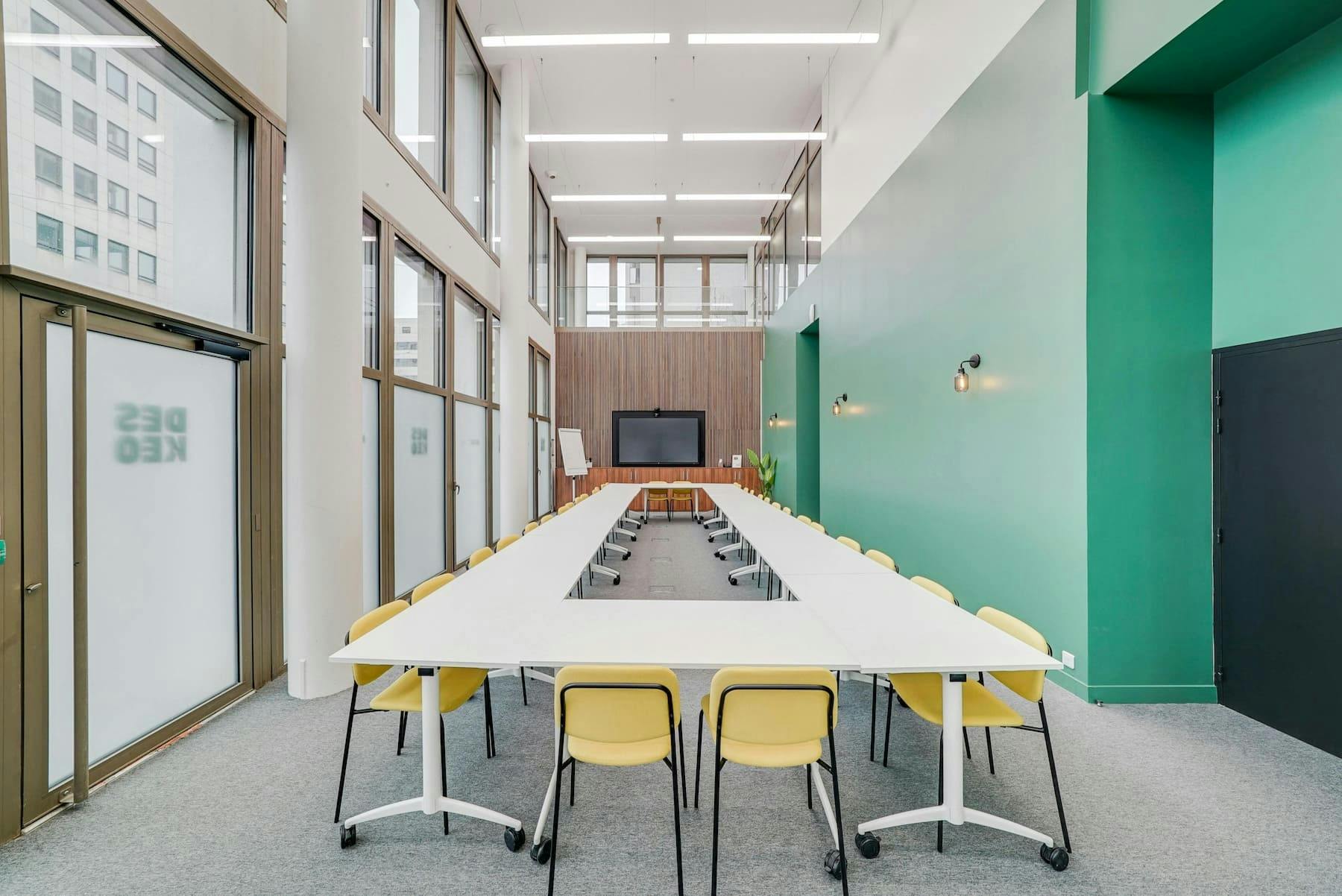

Generation Z at Work: How to Adapt?
The arrival of Generation Z in the job market is profoundly disrupting established norms within companies. Born between 1995 and 2010, these ultra-connected and purpose-driven young people are indeed shaking up traditional patterns and pushing companies to rethink their practices. To attract and retain this new generation of talent, employers must understand their specific expectations and adapt their management accordingly.
Understanding Generation Z
Before seeking to adapt and integrate this new generation, it is essential to understand who they are.
What are the differences between Generations X, Y, and Z?
Each generation is shaped by the socio-economic and technological context in which it grew up. Therefore, members of Gen Z will not have the same expectations and work habits as those of previous generations:
| Generation | Birth Years | Key Values at Work | Preferred Communication | Characteristic Trait |
|---|---|---|---|---|
| X | 1965-1980 | Work-life balance | Loyal, Respectful of authority, Organized | |
| Y | 1980-1995 | Flexibility, Collaboration | Social media | Multitasking, Adaptability, Digital proficiency |
| Z | 1995-2010 | Purpose, Autonomy, Well-being | Vidéo, messaging | Independent, Quick, Entrepreneurial, Curious |
These generational differences impact how young people of Generation Z approach the world of work. Companies must take this into account to create a stimulating and fulfilling environment for this new generation of employees.
Distinguishing Generation Z from Millennials
Generation Z can often be confused with Millennials (or Generation Y). While it is true that they resemble each other in some aspects, these two generations display distinct specificities that are important to understand in order to finely tune management practices for each of them. Unlike Millennials who witnessed the rise of digital technology, Generation Z was born into a hyper-connected world. These "digital natives" instinctively master the codes of new technologies and the web, which influences their vision of work: more agile and open to change, they are also more demanding in terms of responsiveness and immediacy. Furthermore, Generation Z appears more pragmatic and cautious than Generation Y. Marked by a context of economic and environmental crises, they primarily aspire to a stable job that has meaning. This quest for security and societal responsibility must be taken into account by companies that wish to attract them. But it is also crucial to understand their relationship to work and their other expectations.
What Does Generation Z Expect at Work?
The talents of Generation Z have specific professional aspirations and want a job that has meaning and pleases them.
A Desire for Meaningful Work to Fully Flourish
For "Gen Z," work is not an end in itself but a means to flourish and contribute positively to society. According to a study conducted by the Jean-Jaurès Foundation in partnership with IÉSEG, 93% of young people from Generation Z consider having a meaningful job important, even very important. Born in a world undergoing significant changes with pressing societal issues (environment, globalization...), they aspire to a job that aligns with their ideas and personality. Therefore, employers who wish to attract them must ensure they offer meaningful missions and highlight their positive societal impact. It is also crucial to offer motivating career prospects to satisfy their thirst for learning while respecting their need for autonomy.
Greater Autonomy, Freedom, and Flexibility
Nurtured by the sharing economy and startup culture, Generation Z aspires to more autonomy in their work. According to a study conducted by Dell and Intel, 76% of young people from Generation Z desire more flexibility in their work hours and location. To meet these expectations, companies must absolutely focus on trust-based and accountability-based management and offer more flexibility in work organization:
- Flexible hours
- Teleworking
- Management by objectives
The challenge is to provide the necessary freedom to thrive while maintaining a structured framework.
Better Quality of Work Life
The balance between professional and private life is an increasingly determining criterion in career choices for Generation Z. These young people are attentive to their well-being and wish to invest in their personal lives. Employers must therefore create the conditions for a good quality of work life and take concrete actions to promote the well-being of these new employees:
- Relaxation spaces
- Team building activities
- Psychosocial risk prevention programs
The main objective to attract them is to make the workplace a real living space, where it is good to work and where everyone can thrive.
A Horizontal Vision of Work and Cross-Communication
Agile and creative, Generation Z employees appreciate fluid and low-hierarchy structures. They prefer cross and informal communication modes to vertical and top-down relationships. It is therefore important to break traditional managerial codes by promoting direct exchanges at all levels of the company. Managers must position themselves as coaches, listening to and serving their teams rather than as authoritative bosses if they want to foster a climate of trust that encourages initiative and teamwork.
Creating Social Bonds Within the Company
The digital natives of Generation Z attach great importance to the collective. Their motivation at work is fueled by the sense of belonging and social interactions they develop in the company. To promote their engagement, it is essential to cultivate team spirit and create bonds among employees through the organization of friendly events such as:
- Breakfast meetings
- After-work gatherings
- Sports sessions
These are also opportunities to break down departmental silos and promote cross-collaboration.
Now that we have a better understanding of Generation Z's expectations, let's see how to motivate them daily.
How to Motivate Generation Z Workers?
Retaining Generation Z employees involves a real strategy of support and development. It is necessary to create a motivating work environment conducive to both professional and personal development.
Providing Clear Opportunities for Advancement
To satisfy their thirst for learning and progress, it is crucial to offer young people from Generation Z stimulating career prospects. This involves setting up individualized development plans, which clearly define skill enhancement objectives and internal mobility opportunities. Companies should also encourage continuous training by offering mentoring programs, coaching, or learning expeditions. The challenge is to give them the means to project themselves into a dynamic career path within the company.
Scheduling Time for Feedback and Exchange
Generation Z has grown up with social networks and is used to giving their opinion transparently. To encourage them to express themselves and get involved, it is important to establish a culture of kind and constructive feedback. This implies setting up regular exchange spaces where everyone can share their successes, difficulties, and suggestions for improvement. These feedback moments should be bidirectional, with a management team that listens and is ready to evolve its practices.
Highlighting and Utilizing Their Skills
To stimulate their engagement, it is also essential to highlight the skills and achievements of Generation Z employees. Do not hesitate to show them recognition daily by emphasizing their successes and entrusting them with responsibilities that match their potential. This is a way to show them that they play a key role in collective success.
Prioritizing Employee Well-being
Well-being at work is a major motivation factor for Gen Z, who aspire to a better life balance. Therefore, it is important to place mental and physical health at the heart of the company's priorities through programs that promote well-being at work:
- Relaxation spaces
- Stress management workshops
- No-meeting hours
It may also be relevant to appoint a well-being referent or organize awareness campaigns about good practices to create a caring and fulfilling work environment.
The Importance of the Work Environment for Generation Z
To attract and retain Generation Z workers, it is no longer enough to offer them a stimulating job and a good salary. It is also necessary to offer them a pleasant work environment to encourage them to join the company and stay there.
Physical Activity: An Essential Source of Motivation at Work
Physical well-being is an integral part of Generation Z's expectations. To meet this, more and more companies are setting up spaces dedicated to sports and offering group classes at the workplace. For example, Decathlon has implemented a program called "Décath'Fit," with sports coaches in company headquarters, or Sorare has installed a soccer field in its offices. These initiatives have multiple benefits as they not only promote employees' health but also enhance team cohesion and work motivation.
Flexible and Collaborative Workspaces
Generation Z workers particularly appreciate open and modular work environments that promote social interactions and creativity. Fixed open spaces and closed offices no longer fit their agile and collaborative work styles. Therefore, companies that wish to attract them must respond to these new expectations and rethink the layout of their premises:
- Project spaces
- Creative labs
- Relaxation corners
The challenge is to offer a variety of work configurations tailored to each activity and desire. This is precisely the concept of the 'flex offices' proposed by Deskeo. These new-generation coworking spaces attract Generation Z by their inspiring design, high-tech equipment, and rich ecosystem. They embody a new relationship with the work environment based on flexibility and freedom of movement.
Company Culture and Its Impact on Employee Satisfaction
Finally, beyond the walls, the entire company culture must align with the values of Generation Z. Whether it's the CSR policy, work organization, or management style, each aspect of the culture must reflect their deep aspirations. Structures must therefore strive to be exemplary in terms of societal and environmental commitment. Discover how to adapt to Generation Z at work, their expectations, motivations, and best practices to promote their integration and productivity.

Contact Us
We find your Perfect fit!

